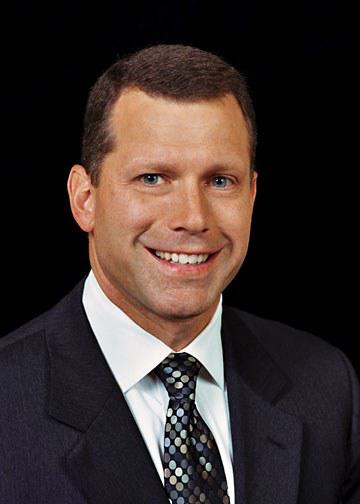Former Plumber Awarded $1.5 Million for Shoulder Injury

By Amaris Elliott-Engel of the Legal Intelligencer

Ken Fulginiti, Esq.

Tom Duffy, Esq.
A former union plumber has received a $1.5 million settlement for a shoulder injury he allegedly sustained after his foot fell through a rotting floor.
David A. Kee, now 53, was part of a team renovating the Mt. Olivet Village public housing complex on 4101-4123 Haverford Ave. in Philadelphia when his foot fell through a rotting bathroom floorboard near a toilet in Building B June 30, 2004, according to the plaintiff's pretrial memorandum. Kee injured his shoulders, as well as his back and neck, during his fall.
The defendants in Kee v. Philadelphia Housing Authority included the Public Housing Authority, general contractor Barclay White Skanska Inc., and/or Skanska U.S.A. Building Inc. and subcontractor Turnkey Construction Services Inc., a subcontractor responsible for general inspections, according to court papers.
Skanska contributed $1,106,250, Turnkey contributed $375,000 and PHA contributed $25,000 to the settlement reached July 9, according to interviews with plaintiff's attorneys Thomas J. Duffy and Kenneth F. Fulginiti of Duffy & Keenan and Turnkey's defense attorney John J. Delany III of Delany & O'Brien.
Philadelphia Court of Common Pleas Judge Sandra Mazer Moss presided over the case and was instrumental in bringing a resolution to the case, Delany, Duffy and Fulginiti said.
"She really, really worked to bring people back repeatedly," Duffy said. "She went above and beyond what most judges do to work to get this case settled."
The plaintiff's attorneys argued that all of the defendants were responsible for Kee's injury because the work site had not been made safe for the members of the union trades working on the site.
"Mr. Kee should not have been permitted to work in a building where the floors were not sound for the workers," the plaintiff's memorandum said. "Mr. Kee should not have been permitted to work in a building that had rotted flooring. Mr. Kee should not have been permitted to work in a building that exposed him to serious injury."
According to the plaintiff's memorandum, Kee's fall caused bilateral rotator cuff tears in his shoulders, as well as nerve impingement. Kee no longer can lift anything over his head and can no longer lift more than 20 pounds, which prohibits him from working as a plumber, according to plaintiff's papers.
Kee's attorneys said in court papers Kee's past medical expenses totaled $80,000 and his past wage loss totaled $225,000. Kee's future medical expenses were estimated at $1.25 million and his future wage loss was estimated at $1 million.
Fulginiti said Kee has tried seven jobs since his on-job fall, and even jobs at Home Depot or Lowe's have been too much for him because of Kee's inability to lift his arms over his head. He also said Kee was making $50,000 a year before his injury.
Skanska and Turnkey said Kee suffered from pre-existing degenerative disease in his shoulders and that his injuries predominantly resulted from the degenerative disease, not his fall, according to both companies' pretrial defense memorandums.
The plaintiff demanded $5 million at the outset of the case before discovery was undertaken, but Fulginiti said the ultimate settlement was a good outcome for Kee because it resolved the case without the risk of appeal in the future. Fulginiti also said Kee looked good and his injury couldn't be discerned just by looking at him.
"In Philadelphia, you have to make a demand at the very beginning of the case before there's any discovery," Fulginiti said. "They make you make a demand, I think, to determine in part whether they're going to remand a case for arbitration . . . and you hope you won't undersell the case."
Skanska argued in its defense memorandum that it was protected from liability because it was Kee's statutory employer via its subcontract with Kee's employer, James J. Gory Mechanical Contracts. Under the subcontract, the Gory company was responsible for installing new bathrooms and piping at the housing complex.
Skanska's attorney, Christopher Dougherty of Marshall Dennehey Warner Coleman & Goggin, said Skanska is pursuing a separate action against Gory because Skanska believes the contract indemnifies the company. Dougherty declined comment beyond confirming the overall $1.5 million settlement and noting the pending action against Gory.
Skanska argued that Turnkey had responsibility for overall construction safety at the site because of its employment of Frank Gaull as project superintendent and because Turnkey was the "'on-site controlling employer,'" according to its defense memorandum.
Skanska also said that Kee's employer had the responsibility for its employee's safety and should have required its plumbers to place planks in every bathroom before beginning work, its defense memorandum said.
Delany said the settlement was a good outcome for Turnkey because its settlement payout is a fraction of the original demand.
"It was our contention and still is our contention we were not liable," Delany said.
Turnkey argued that Gaull was a "'borrowed servant'" and any alleged negligence on his part shifted from Turnkey to Skanska because Gaull was working under Skanska's contract, policies, procedures and hierarchy, according to Turnkey's defense memorandum.
"Mr. Gaull was paid by Turnkey, but he was working as Skanska's superintendent, administering Skanska's subcontracts (over 50 subcontractors), enforcing Skanska's policies and procedures, following Skanska's safety program, and clearly acting for, on behalf of, to the benefit of, and at the direction of Skanska," Turnkey's memorandum argued.
The PHA argued in its pretrial memorandum that when PHA entered its general services contract with Skanska, Skanska agreed to assume all risks and responsibility for work that could be attributed "'directly or indirectly'" to Skanska.
"PHA had no responsibility for the safety on the work site nor the means and methods of the construction work," the PHA memorandum said.
PHA's attorney, Susanna Randazzo of Kolber Freiman & Randazzo, said PHA settled in order to end the case. "Our contribution was nominal, and it was simply made to avoid the cost of litigation," she said.

